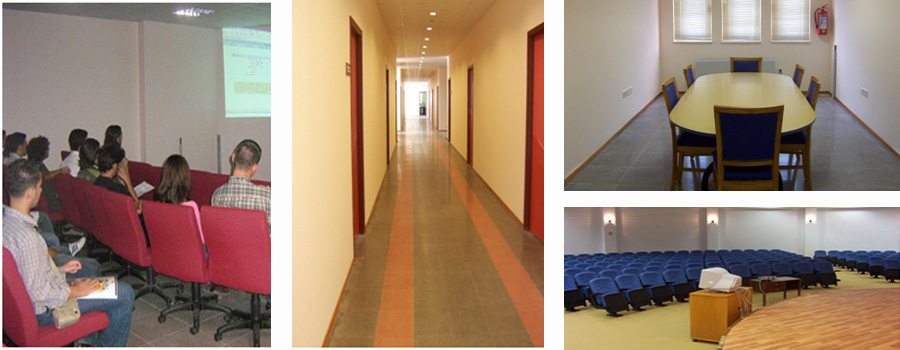Transportation
Airline
Izmir can be easily reached
from many European capitals with Adnan Menderes airport, located 16 km south of
the city in Gaziemir District. Many regular domestic
and international flights can be made every day from
Adnan Menderes Airport. Shuttle buses and rail systems operate between the
airport and the city center.
For more information, visit the following
sites.
https://www.adnanmenderesairport.com/
Bus Services
The bus travel system in Turkey is widely used
and the fares are very reasonable to get you anywhere you want from Izmir.
There is a large bus terminal in Pınarbaşı and from here
there are bus services to all over Turkey.
http://www.izotas.com.tr/anasayfa
Railway Services
There are two main train stations in Izmir, Alsancak and Basmane, and both
are very close to the city center.
For more information, visit the following
sites.
Seaway Services
The largest port after Istanbul is in Izmir.
The port has an important role in the Turkish economy and transportation of
Izmir. In Izmir, there are ferry services during the day from Alsancak, Pasaport, Konak, Göztepe, Karşıyaka, Bostanlı
and Üçkuyular.
Urban Transportation
Urban transportation is cheap and has
alternatives such as bus, ferry, metro, taxi, tram, minibus and Izban.
Izmirim Card, a chip card system for public
transportation, is used on buses and ferries, making
transportation even more convenient. In order to have a Student Izmirim Card, you must apply to Izmirim
Card Application Centers with a student certificate obtained from the
university. Student cards are discounted for students.
For more information, visit the following
sites:
https://www.izmirimkart.com.tr/ulasim-kartlari/indirimli-ogrenci
Transportation to DEU Campuses
DEU is a widespread university consisting of
many campuses scattered in various districts of Izmir.
For this reason, students can use different
means of transportation such as buses, ferries, minibuses, izban,
trams and metro to reach the campuses.
CAMPUSES
Rectorate
15 Temmuz Health And Art Campus
Faculty of Dentistry
Faculty of Nursing
Faculty of Physical Therapy and Rehabilitation
Institute of Health Sciences
Vocational School of Healthcare
İzmir International Biomedicine and Genome Institute
Buca Faculty Of Education Campus
Buca Faculty Of Education
İzmir Vocational School
Institute of Educational Sciences
Dokuzçeşmeler Campus
Faculty of Economics and Administrative Sciences
Tinaztepe Campus
Faculty of Maritime
Faculty of Letters
Faculty of Sciences
Faculty of fine arts
Faculty of Law
Faculty of Management
Faculty of Architecture
Faculty of Engineering
Faculty of Tourism
State Conservatory
School of Applied Sciences
School of Foreign Languages
Vocational School of Justice
Ataturk Principles and Revolution History Institute
Graduate School of Natural and Applied Sciences
Graduate School of Social Sciences
Hatay - Faculty of Divinity
Torbalı - Torbalı Vocational School
Reha Midilli Foça Turizm Fakültesi
Bergama Meslek Yüksekokulu
Selçuk - Efes Meslek Yüksekokulu
Kiraz- Veteriner Fakültesi
Konak - DEU Sabancı Kültür Merkezi
CLIMATE
In Izmir, which is in the Mediterranean climate
zone, summers are hot and dry and winters are warm and rainy. The fact that the
mountains extend perpendicular to the sea and the plains extend to the
threshold of Central Western Anatolia allow marine influences to spread to the
interior.
The average annual temperature in Izmir varies
between 16ºC (Bergama) and 17ºC (Bayındır).
Considering the extreme values measured in Izmir, it is understood that the temperature varies between a maximum
of 45.1ºC (Torbalı) and a minimum of -13ºC (Ödemiş).
For detailed information:
http://izmir.gov.tr/izmir-hakkinda
Currency:
Turkey's currency is Turkish Lira (TL). The Central Bank of the Republic of Turkey is the central bank with the authority to print money and determine official exchange rates.Academic calendar
The Academic Calendar consists of two terms:
Fall semester starts in September/October and ends in January, and spring
semester starts in February and ends in June. Terms are 16/17 weeks.
Orientation Program
The Erasmus incoming student orientation
program is held in the first week of the semester. It
contains useful practical information about Türkiye
and Turkish Culture.
Turkish Language Course
Turkish Language Course is open to all Erasmus
exchange students and is held free of charge, once a week, every
semester. Its aim is to teach practical Turkish that will be useful in daily
life. At the end of the course, students receive a certificate if they score 70
out of 100 and, if their university accepts it, they earn 3
ECTS.
Visa
Erasmus students must obtain a study visa from
the Turkish consulates in their home countries before coming to Turkey.



